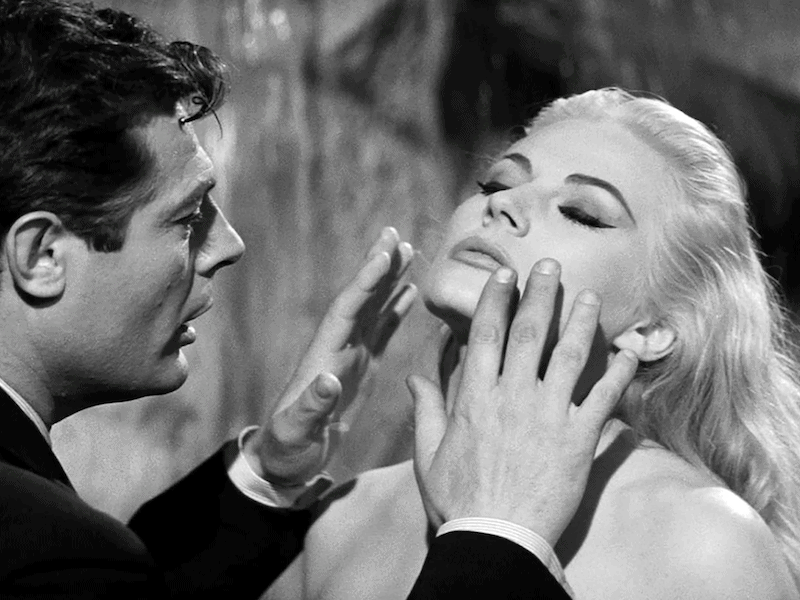
Welcome to The Queue — your daily distraction of curated video content sourced from across the web. Today, we’re watching a video that explores La Dolce Vita.
There was a shift in Federico Fellini‘s career in 1960. And that shift is called La Dolce Vita.
The film tells the episodic journey of an Italian gossip columnist scouring Rome for love. Surrounded by paparazzi and hedonistic excess, La Dolce Vita is simultaneously enchanted by and critical of glamour and superficiality. Post-war social change favored more extravagant tastes. And Fellini responded to these social changes with a change of his own: a departure from the raw, neo-realist authenticity towards a bolder, more poetic, and showy sensibility.
Many think of Italian neo-realism as the most influential movement in the history of film, a move towards a more honest depiction of reality, especially the realities of the poor, war-weary, and disenfranchised. Filming on-location and favoring non-professional actors, the movement represents a rejection of the sanitized glamour of commercial cinema. This is what makes La Doce Vita such a fascinating case study, a turning point in Fellini’s career away from grit towards the fantastical.
Watch “La Dolce Vita | Federico Fellini’s Stylish Cinematic Landmark“:
Who made this?
Leigh Singer wrote, narrated, and edited this video essay. It exists under the auspices of The Discarded Image, a video series created by Julian Palmer that deconstructs what else? Film. The series began with a deconstruction of how Steven Spielberg creates suspense with the beach scene in Jaws and has steadily grown from there. You can check out The Discarded Image’s video essays here.
More Videos Like This
- Here’s what La Dolce Vita can tell us about how the film weaponizes spectacle, emotional detachment, and narrative vignettes
- Want to know more about neo-realism? Here’s Sight & Sound to the rescue
- No Film School has a marvelous video by Tyler Knudsen (a.k.a. Cinema Tyler) on how great directors like Visconti, De Sica, and Rossellini ushered in the raw, unfiltered reality of Italian Neorealism
- Here’s a video essay by the good folks at Fandor on Vittorio De Sica, whose post-war Italian Neorealist classics, like Bicycle Thieves and Umberto D. inspired new waves of independent filmmakers and proved the power of relatable stories
- Here is Studs Terkel interviewing Fellini during the editing of his masterpiece 8 1/2
Related Topics: Federico Fellini, La Dolce Vita, The Queue

